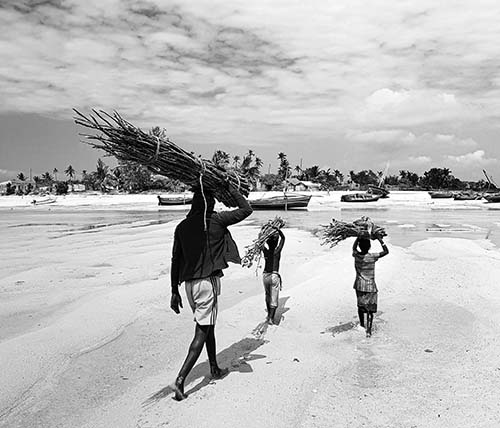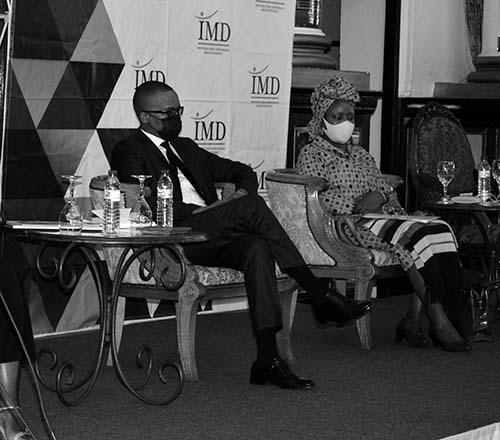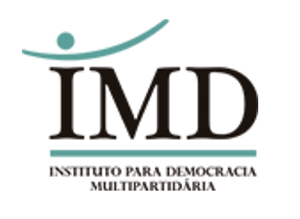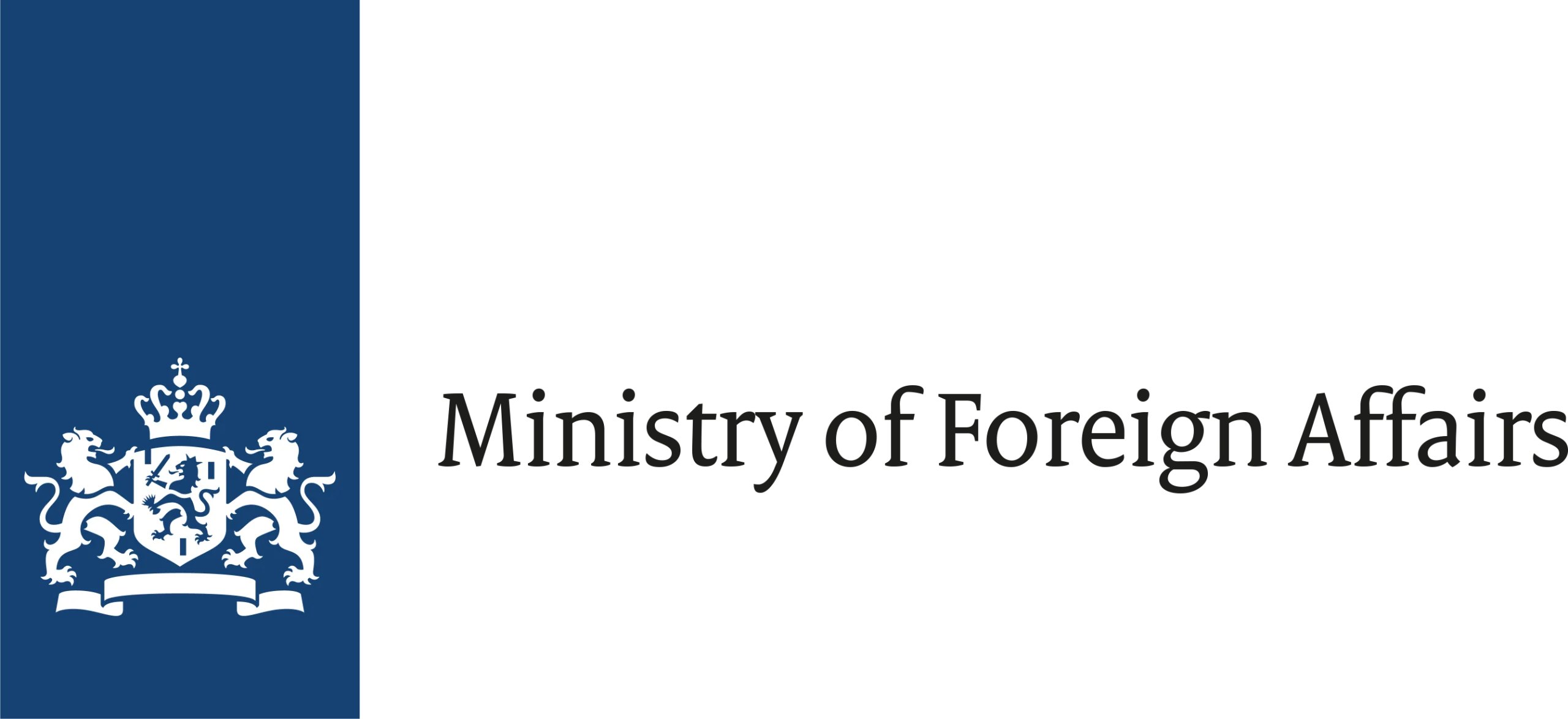Mozambique


- NIMD in Mozambique: In een oogopslag
- Wat we doen
- Hoe we het doen
- Maak kennis met het team
Hoofddoel
Het opbouwen van vertrouwen, het verminderen van verkiezingsgeweld en het versterken van democratische processen in Mozambique - terwijl de stemmen van gemarginaliseerde groepen, met name vrouwen en jongeren, in de politiek en besluitvorming worden versterkt.
Resultaten
Door middel van ondersteuning en training hebben NIMD en onze partner IMD de vrouwenliga's voorzien van instrumenten en strategieën om met succes te lobbyen voor meer vrouwen om voorgedragen te worden als belangrijkste kandidaten bij de gemeenteraadsverkiezingen van 2023. Dit leidde tot de nominatie van 24 vrouwen - een stijging ten opzichte van 2018. Hiervan werden er zes gekozen.
De Peace Room in Mozambique, die gezamenlijk door IMD en haar partners wordt uitgevoerd, werkt aan het waarborgen van de integriteit en legitimiteit van het verkiezingsproces. Na de algemene verkiezingen van 2024 heeft de Peace Room politieke partijen getraind in het voeren van verkiezingsprocessen, zodat zij onregelmatigheden bij de verkiezingen met geweldloze middelen kunnen aanpakken. Dit heeft de partijen geholpen bij het opzetten van een nieuwe reeks transparante juridische processen - een eerste stap op weg naar het herstel van vertrouwen in de democratie en het verminderen van het risico op toekomstig verkiezingsgeweld.
NIMD en IMD brengen regelmatig politici van verschillende partijen met elkaar in dialoog. Samen hebben ze een nationale politieke agenda voor vrouwen opgesteld en er voor gelobbyd om de betekenisvolle deelname van vrouwen aan de politiek te bevorderen. Met steun vanuit het hele politieke spectrum en ondertekend door verschillende burgerleiders, is deze agenda een belangrijke stap in de richting van het versterken van de stem van vrouwen in de politiek en het bevorderen van partijoverschrijdende samenwerking om genderinclusief beleid te bevorderen.
Mozambique: Politieke achtergrond
Sinds Mozambique in 1992 uit een 16 jaar durende burgeroorlog kwam, heeft het land zich ingezet voor vrede en democratie. Het land heeft een meerpartijenstelsel ingevoerd, houdt regelmatig verkiezingen en heeft in 2019 een historisch vredesakkoord ondertekend. Maar zoals veel landen met een conflictverleden blijft Mozambique worstelen met politieke instabiliteit en spanningen tussen politieke partijen.
De kern van veel van deze uitdagingen wordt gevormd door inclusieve politiek en politieke vrijheden. Voor veel structureel uitgesloten groepen, waaronder vrouwen en jongeren, zijn er nog steeds belemmeringen voor politieke participatie. Deze omvatten beperkte vrijheid van meningsuiting binnen politieke partijen en beperkingen voor vrouwen- en jeugdverenigingen.
Daarnaast blijft de effectieve uitoefening van grondwettelijke rechten, zoals de vrijheid van meningsuiting en het recht op vreedzame demonstratie, een groot probleem. Protesten worden vaak beantwoord met repressieve reacties, waaronder het gebruik van buitensporig geweld. Na de laatste algemene verkiezingen in Mozambique in oktober 2024 werd deze realiteit pijnlijk duidelijk. Te midden van wangedrag bij de verkiezingen, betwistingen en beschuldigingen van fraude, meer dan 100 mensen stierven in protesten na de verkiezingen.
Mozambique staat nu op een belangrijk moment. In de komende maanden en jaren zal het land moeten werken aan het herstellen van het vertrouwen in de politiek en het versterken van de democratische fundamenten. Door inclusieve politiek prioriteit te geven, de transparantie en robuustheid van de kiesstelsels te verbeteren en het vertrouwen tussen burgers en instellingen weer op te bouwen, kan Mozambique belangrijke stappen zetten in de richting van een democratie waarin alle stemmen - met name die welke historisch uitgesloten waren - gehoord worden. Dit zal essentieel zijn om te zorgen voor blijvende vrede, stabiliteit en een politiek systeem dat voor iedereen werkt.
Wat we doen
NIMD werkt sinds 2000 in Mozambique. Onze projecten worden uitgevoerd door onze partnerorganisatie de Instituut voor meerpartijendemocratie Mozambique (IMD)die zich inzet om de uitvoering van het vredesakkoord te ondersteunen en de betekenisvolle deelname van vrouwen en jongeren aan politieke processen te bevorderen.
We richten ons op het opbouwen van een inclusief politiek systeem en cultuur door middel van dialoog tussen de partijen, training en samenwerking tussen politici en maatschappelijke organisaties. Dit omvat het ondersteunen van transparante en vreedzame verkiezingen, het versterken van vertrouwen tussen politieke actoren en het versterken van de stem van gemarginaliseerde groepen.
Wij geloven dat een meer inclusieve, transparante en representatieve politiek essentieel is voor een stabiele en democratische toekomst - een toekomst waarin burgers zich gehoord voelen, vertrouwen hebben in hun instellingen en actief betrokken zijn bij het vormgeven van de toekomst van hun land.
Wat we doen: In cijfers
Hoe we het doen
Dialoog
De kern van onze aanpak in Mozambique is dialoog. NIMD en IMD werken samen met verschillende groepen om een respectvolle en inclusieve discussie te bevorderen over onderwerpen die cruciaal zijn voor de toekomst van de democratie in Mozambique.
Ten eerste werken we aan het bevorderen van samenwerking tussen de partijen, grotere transparantie en een omgeving met meer vertrouwen rondom verkiezingen. In 2014 lanceerde IMD het Peace Room-initiatief, een innovatieve aanpak om verkiezingsgeschillen op te lossen door belangrijke actoren uit het hele politieke spectrum op belangrijke momenten tijdens de verkiezingscyclus in een kamer samen te brengen. Zij bespraken dan in realtime een gezamenlijke aanpak voor mogelijke onregelmatigheden bij de verkiezingen, waardoor het vertrouwen van het publiek in de integriteit van het proces toenam. Het model werd herhaald bij de algemene verkiezingen van 2019 en 2024.
Historisch gezien is er ook een kloof tussen het maatschappelijk middenveld en de overheid in Mozambique, waarbij de interacties vaak vijandig en onproductief zijn. Wij proberen deze verschillende actoren rond de tafel te krijgen om ervoor te zorgen dat kennis en ervaring in een respectvolle sfeer kunnen worden gedeeld. Eerdere IMD-dialogen waren vooral gericht op het creëren van consensus rond de winningsindustrieën, terwijl meer recente dialogen zich richtten op inclusieve politiek, inclusief het creëren van gezamenlijke strategieën om barrières voor de politieke participatie van vrouwen en jongeren te slechten. Wanneer dergelijke initiatieven gebaseerd zijn op een consensus over scheidslijnen heen, hebben ze een grotere legitimiteit en een grotere kans om blijvende veranderingen teweeg te brengen.
Responsieve politiek
Als onderdeel van ons engagement om veilige, transparante en inclusieve politiek te ondersteunen, organiseren NIMD en IMD trainingscursussen voor politici. Ons doel is om politici en hun instellingen te ondersteunen bij het inspelen op de behoeften van de bevolking van Mozambique en het opbouwen van vertrouwen onder de bevolking.
Een van onze grootste taken in de komende maanden is het ondersteunen van nieuwe parlementsleden. Na de verkiezingen van 2024 zijn meer dan 50% van de nieuw gekozen parlementsleden nieuwe gezichten. We zullen inductiesessies organiseren om hen te helpen met hun rollen en verantwoordelijkheden. Deze ondersteuning zal cruciaal zijn vanwege de hoge verwachtingen en druk om te presteren terwijl burgers vol spanning afwachten.
Daarnaast bieden we cruciale ondersteuning en training voor vertegenwoordigers van politieke partijen over onderwerpen als inclusiviteit, leiderschap en beleidsontwikkeling, om de partijen te ondersteunen bij het verbeteren van hun vaardigheden, besluitvormingsproces en interne democratie. Zo heeft onze 2023-training voor politieke partijen over het ontwikkelen van schriftelijke manifesten ertoe geleid dat een aantal partijen een gendersensitief en jeugdsensitief perspectief hebben opgenomen in het ontwikkelen van hun manifesten voor de verkiezingen van 2024.
Tot slot speelt onze Vredeskamer een cruciale rol bij het vergroten van de transparantie van verkiezingsprocessen in Mozambique. De Peace Room produceert beleidsnota's en studies met aanbevelingen voor hervorming van het verkiezingsproces. Daarnaast werkt de Vredeskamer aan het waarborgen van de integriteit en legitimiteit van verkiezingsprocessen door het effectief monitoren en delen van realtime informatie over de verkiezingscyclus - zoals kiezersregistratie, campagne, stemdag en het tellen van de resultaten. Door waakzaam te blijven en vast te houden aan democratische principes kan Mozambique werken aan een toekomst waarin verkiezingen eerlijk en transparant verlopen en vrij zijn van geweld.
Vrouwen in de politiek
Vrouwen in Mozambique zijn traditioneel uitgesloten van leidende politieke rollen, maar IMD streeft ernaar dat de stemmen van vrouwen en jongeren worden versterkt terwijl het land naar een transparante en inclusieve politiek toewerkt.
Initiatieven zijn onder andere IMD's Academy for Women in Politics en een programma gericht op Vrouwen, Vrede en Veiligheid dat de rol van vrouwen actief bevordert door het aanbieden van mogelijkheden voor het delen van vaardigheden en netwerken. We werken ook samen met de vrouwenliga's van politieke partijen en maatschappelijke organisaties, met als doel hen te ondersteunen in hun werk voor een inclusieve democratie. Via beide platforms richten we ons op het ondersteunen van de deelnemers bij het opbouwen van vaardigheden en kennis om door politieke barrières te navigeren en hun invloed op hun democratie te laten gelden.
Een uitwisselingsbezoek in 2023 van vrouwelijke leiders van de Women's Political Academy aan Zuid-Afrika heeft bijvoorbeeld geholpen om de netwerken van de deelnemers uit te breiden en vaardigheden op te bouwen in lobbyen en dialoog.
Maak kennis met het team
 Hermenegildo Mulhovo
Uitvoerend directeur NIMD Mozambique
Meer lezen
Hermenegildo Mulhovo
Uitvoerend directeur NIMD Mozambique
Meer lezen
Hermenegildo Mulhovo heeft meer dan 25 jaar ervaring op het gebied van gemeenschapsontwikkeling en hulp bij meerpartijendemocratie en zijn expertisegebieden zijn politieke processen, vredesopbouw, democratisch bestuur van natuurlijke hulpbronnen en strategische planning. Hij heeft een gespecialiseerde opleiding gevolgd aan het Center For Justice and Peace Building van de Eastern Mennonite University (VS) en aan de Folke Bernadotte Academy in Zweden over strategische vredesopbouwprocessen via dialoog en bemiddeling.

Hermenegildo Mulhovo heeft meer dan 25 jaar ervaring op het gebied van gemeenschapsontwikkeling en hulp bij meerpartijendemocratie en zijn expertisegebieden zijn politieke processen, vredesopbouw, democratisch bestuur van natuurlijke hulpbronnen en strategische planning. Hij heeft een gespecialiseerde opleiding gevolgd aan het Center For Justice and Peace Building van de Eastern Mennonite University (VS) en aan de Folke Bernadotte Academy in Zweden over strategische vredesopbouwprocessen via dialoog en bemiddeling.
Met wie we samenwerken

We voeren onze projecten in Mozambique uit samen met het Institute for Multiparty Democracy Mozambique (IMD), een onafhankelijke, onpartijdige organisatie die zich inzet voor democratie in Mozambique.

Ons werk in Mozambique wordt gefinancierd door het Nederlandse Ministerie van Buitenlandse Zaken in het kader van het De kracht van dialoog programma. Het Power of Dialogue consortium bestaat uit NIMD, Instituut Gorée, Akina Mama wa Afrikaen Internationaal centrum voor studies over de Middellandse Zeeen streeft naar een betere samenwerking tussen politieke en burgeractoren om deel te nemen aan verantwoordelijke politieke processen. We ontvangen ook financiering van de Ministerie van Buitenlandse Zaken in Finland, via Demo Finland.

 Facebook
Facebook X
X